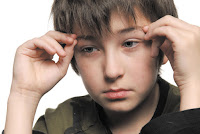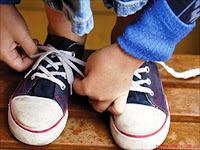Help for the Vindictive, Revengeful Child on the Autism Spectrum

"I need some advice on how to help my child (autistic) deal with his revengeful attitude. He's quick to fly off the handle whenever he thinks he's been treated unfairly (quite a black-and-white thinker)." A youngster with ASD level 1, or high functioning autism, who is vindictive is demonstrating that something is wrong. His rage and hostility are symptoms of an underlying problem. It may be the result of (a) the expression of emotions, attitudes and behavior that have been inadvertently or purposefully conditioned; (b) an expression of emotional distress; (c) an attempt to cope with sensory sensitivities; and/or (d) a physical, developmental, neurological or mental illness. Symptoms of a vindictive or revengeful child include the following: angry and irritable mood argues with parents and teachers behavior causes significant problems at home and school blames others for his or her misbehavior deliberately annoys siblings and peers is easily annoyed

